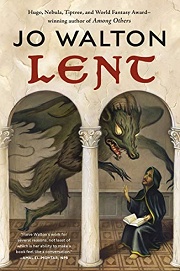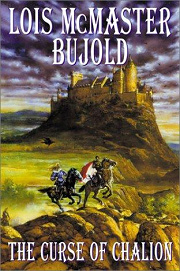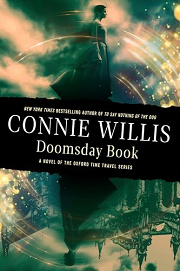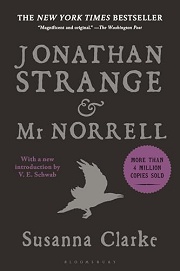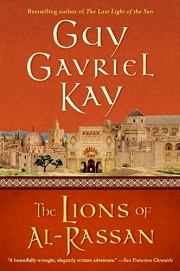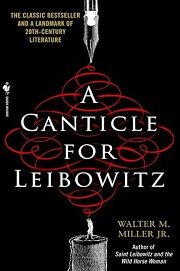Share your thoughts in a quick Shelf Talk!
Lent by Jo Walton
Renaissance Florence blazes with faith, politics, and whispers of demons as a fervent preacher confronts the unseen world—and the limits of his destiny. History bends and possibility widens in a tale of conviction, temptation, and second chances. Lent entwines theology, magic, and time into a rich, thought-provoking fantasia.
Have you read this book? Share what you liked (or didn’t), and we’ll use your answers to recommend your next favorite read!
Love Lent but not sure what to read next?
These picks are popular with readers who enjoyed this book. Complete a quick Shelf Talk to get recommendations made just for you! Warning: possible spoilers for Lent below.
In Lent, did you enjoy ...
... the moral cost of calling on the divine to change the fate of a city?
The Curse of Chalion by Lois McMaster Bujold
If the way Girolamo weighs sin, grace, and intervention in Florence—bargaining with holiness while fending off demons and trying to save his flock from the Bonfire of the Vanities—grabbed you, you’ll love how Cazaril must decide when and how to invite the gods’ perilous attention. In The Curse of Chalion, miracles aren’t shiny; they’re risky acts with debts attached, much like Savonarola’s attempts to steer the Medici and the Signoria toward righteousness. Watching Cazaril accept a saint’s burden to break a dynastic curse echoes Lent’s question: what do you owe your city and your soul when meddling with the sacred might damn you—or redeem everyone?
... a devout soul confronting plague-time history with only faith and hard choices to guide them?
Doomsday Book by Connie Willis
You watched Savonarola die, awaken, and try again—loop after loop—wrestling with conscience as Florence teetered through ordeal and pestilence. Doomsday Book sends Kivrin back to the Black Death, where she, like Girolamo, discovers that mercy and truth matter most when the world burns. The intimate, parish‑by‑parish courage she finds among villagers mirrors the moments in Lent when sermons and small acts of grace contend with terror far better than spectacle. If the second half’s “do it right this time” urgency moved you, Kivrin’s desperate attempts to save a few souls will, too.
... rigorously imagined magic interleaved with real European history and statecraft?
Jonathan Strange and Mr Norrell by Susanna Clarke
If you relished how Lent braids demons and miracles into real events—Lorenzo de’ Medici’s deathbed test, the Signoria’s maneuvers, the failed trial by fire—then Clarke’s alternate Napoleonic Britain will feel perfect. In Jonathan Strange & Mr Norrell, magic returns to the corridors of power, and every conjuration has political consequence, much like Girolamo’s visions warping Florence’s fate. The scholarly rigor, theological‑adjacent debates about the nature of the unseen, and the slow, inexorable way enchantment reshapes history echo the careful, consequential wonder you admired in Walton’s Florence.
... zeal, statecraft, and conscience colliding amid a fracturing renaissance‑era polity?
The Lions of Al-Rassan by Guy Gavriel Kay
Loved the Signoria’s backroom deals, the pulpit’s power, and the way Savonarola’s purity becomes a dangerous political force? Kay’s The Lions of Al‑Rassan lives where faith and ambition meet the sword. Physicians, poets, and captains navigate shifting alliances as city‑states teeter—much as Florence does when Girolamo faces the Medici and the Bonfire. The book’s moral knots—when to compromise, when to stand like Savonarola at the stake—are as tense and human as the debates that define Lent.
... monastic faith wrestling with sin, knowledge, and cyclical history?
A Canticle for Leibowitz by Walter M. Miller, Jr.
If what held you in Lent was Girolamo’s monastic life—confession, study, the daily offices—and the sense that history repeats until we learn how to live rightly, A Canticle for Leibowitz will resonate. Across centuries, monks preserve fragments of lost wisdom, arguing—like Savonarola and his brothers—about what the faithful owe a fallen world. Its wry relics, miracles of uncertain provenance, and recurring moral tests echo Lent’s demons and visions, asking whether sanctity can survive politics and whether any cycle can finally be broken.
Unlock your personalized book recommendations! Just take a quick Shelf Talk for Lent by Jo Walton. It’s only a few questions and takes less than a minute.
